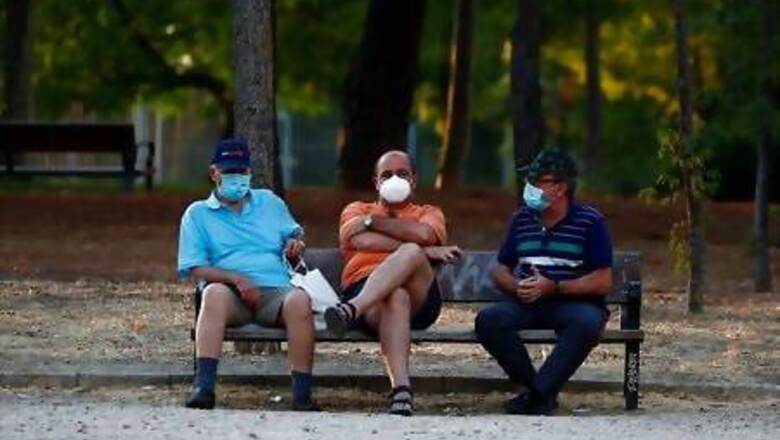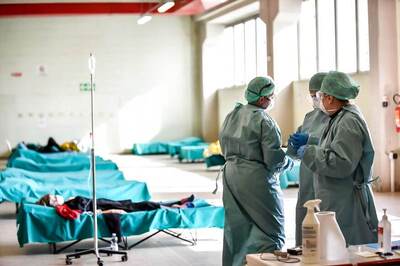
views
MADRID Authorities in the Spanish capital Madrid backtracked on Wednesday over a heavily criticised plan to give an “immunity card” to people testing positive for coronavirus antibodies so they can enjoy higher-risk areas like gyms, bars and museums.
But in the northwestern region of Galicia, authorities announced fines of up to 601,000 euros ($706,000) for visitors from at-risk areas who do not sign up to an online registry.
With nearly 13,000 cases detected in the last seven days, Spain is battling a resurgence in the virus that has sent regions scrambling to introduce new safety measures and prompted Britain to introduce a quarantine on returnees.
Madrid, which bore the brunt of the early April peak but has since managed to keep a lid on new infections, was the first Spanish region to consider a card system.
Politicians, rights groups and epidemiologists condemned the project, announced by regional leader Isabel Diaz Ayuso, as potentially discriminatory and medically unsound.
But after a weekly cabinet meeting of the Madrid authority, her deputy, Ignacio Aguado, told a news conference that the controversial cards would not in fact be issued.
“This would be a registry of organised, updated information, only to be consulted by the health services so that they can take epidemiological decisions,” he said of the modified plans.
Ayuso, who unveiled the programme on Tuesday as a way of letting non-infectious people lead more normal lives while keeping vulnerable people under stricter measures, was not immediately available for comment.
WHO DISAPPROVES
The World Health Organisation has discouraged the use of immunity passports, saying there is no proof antibodies provide lasting protection. A large Spanish study showed 14% of participants with antibodies had lost them within three months.
Estonia began trialling digital immunity passports in May, while Germany, grappling with similar issues to Spain, referred a similar scheme to its national ethics council.
Ayuso’s plan brought disquiet on the streets of Madrid.
“It doesn’t seem right to me because it could lead to discrimination, or people wanting to get infected to obtain the card,” said auditor Raquel Pumares.
Ruben Sanchez, a spokesman for the FACUA consumer rights group, called it “ridiculous”.
Still, Alberto Nunez Feijoo, the conservative head of northern Galicia region, was among a few people applauding the Madrid idea, telling RNE radio: “It doesn’t sound bad to me.”
Remote and relatively unaffected by the virus, Galicia nonetheless said travellers from more than 100 countries and half a dozen Spanish regions must give information including address and passport number on arrival or face stiff penalties.
Fines range from a maximum of a few hundred euros for minor infractions to hundreds of thousands for sparking a major outbreak.
The idea behind the mandatory form filling is not the fines, though, Galician officials said, but informing people of rules they must respect, such as wearing a mask, and being able to contact them in case of an outbreak.
“What we want is to help people, all the people, who come from those territories, and help the Galician population too,” Feijoo said. “The goal is not to punish but to aid.”
Disclaimer: This post has been auto-published from an agency feed without any modifications to the text and has not been reviewed by an editor




















Comments
0 comment